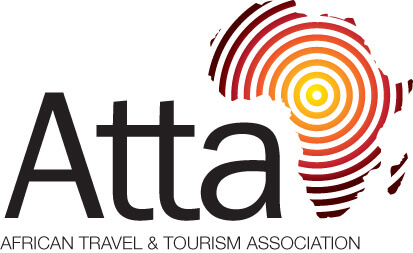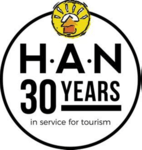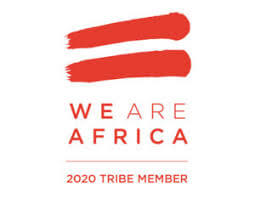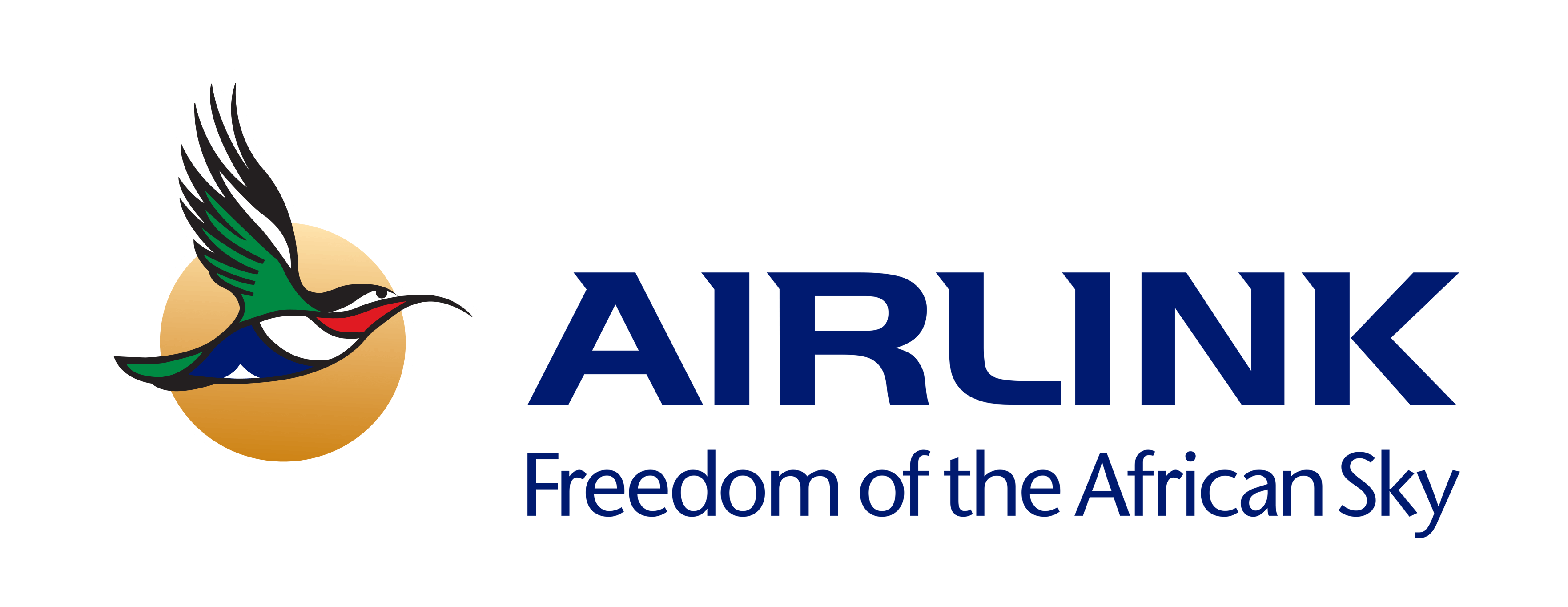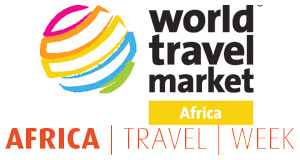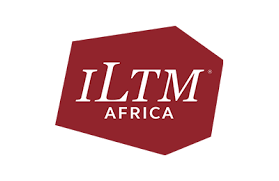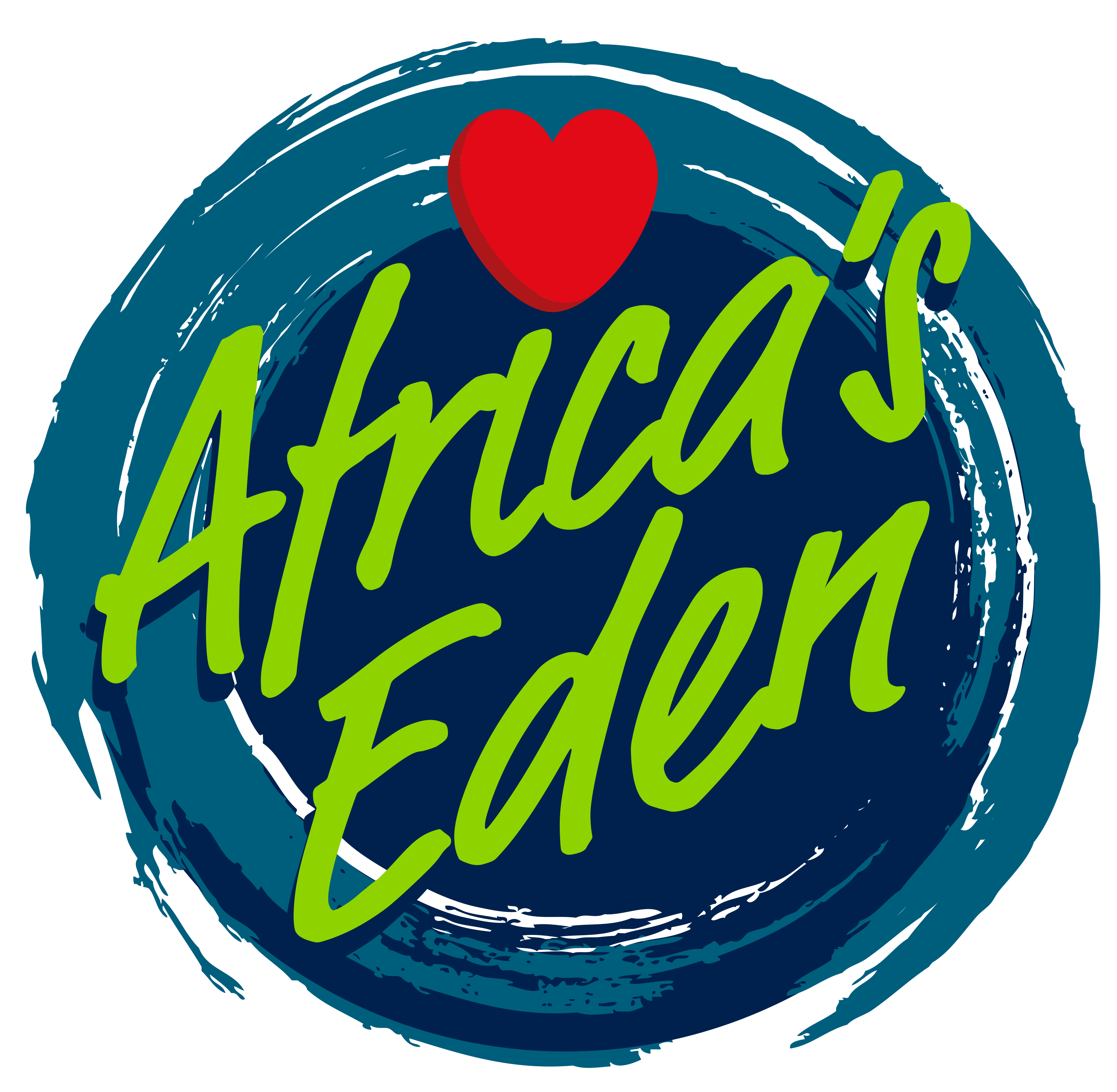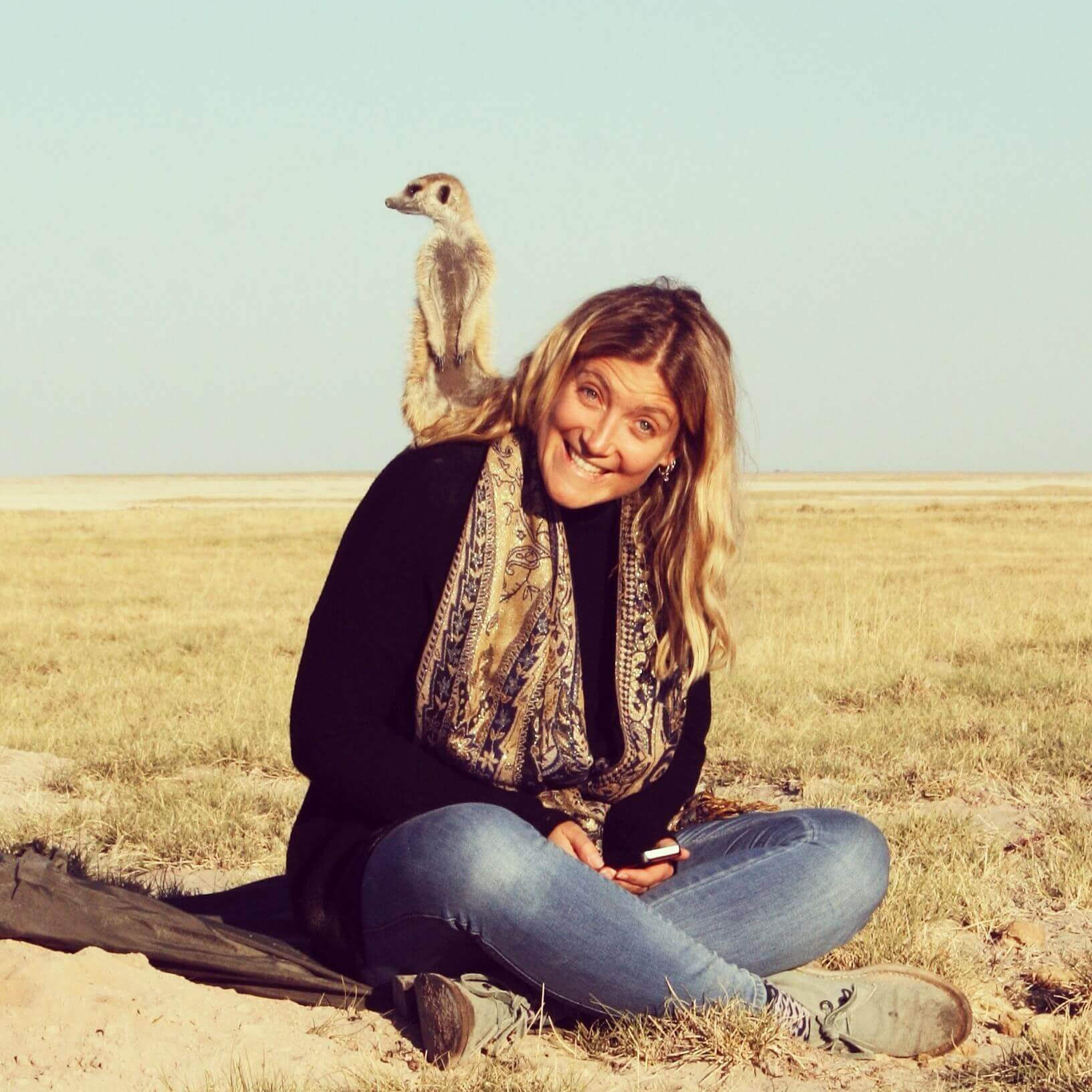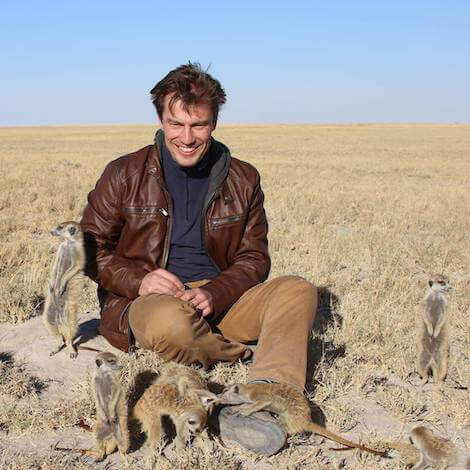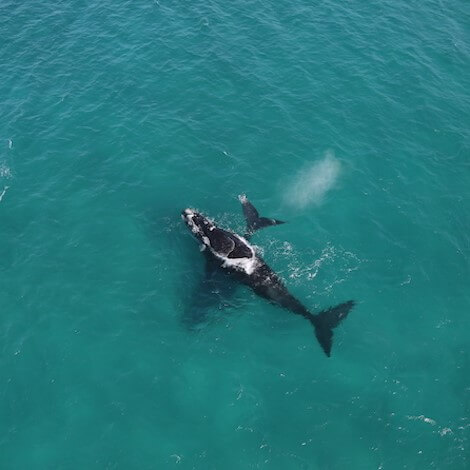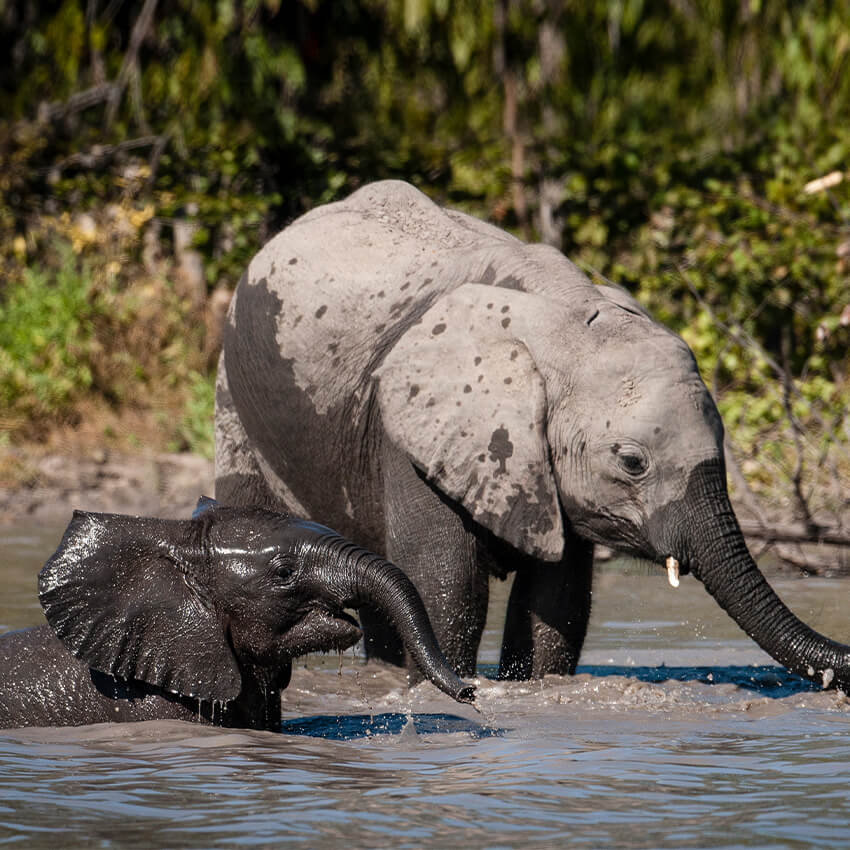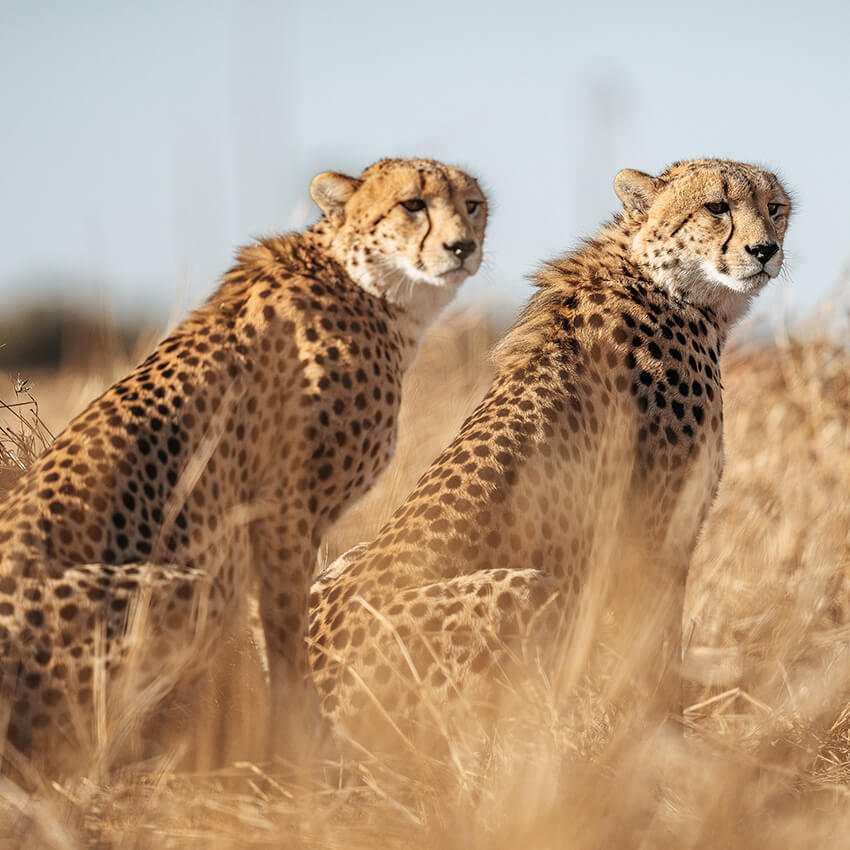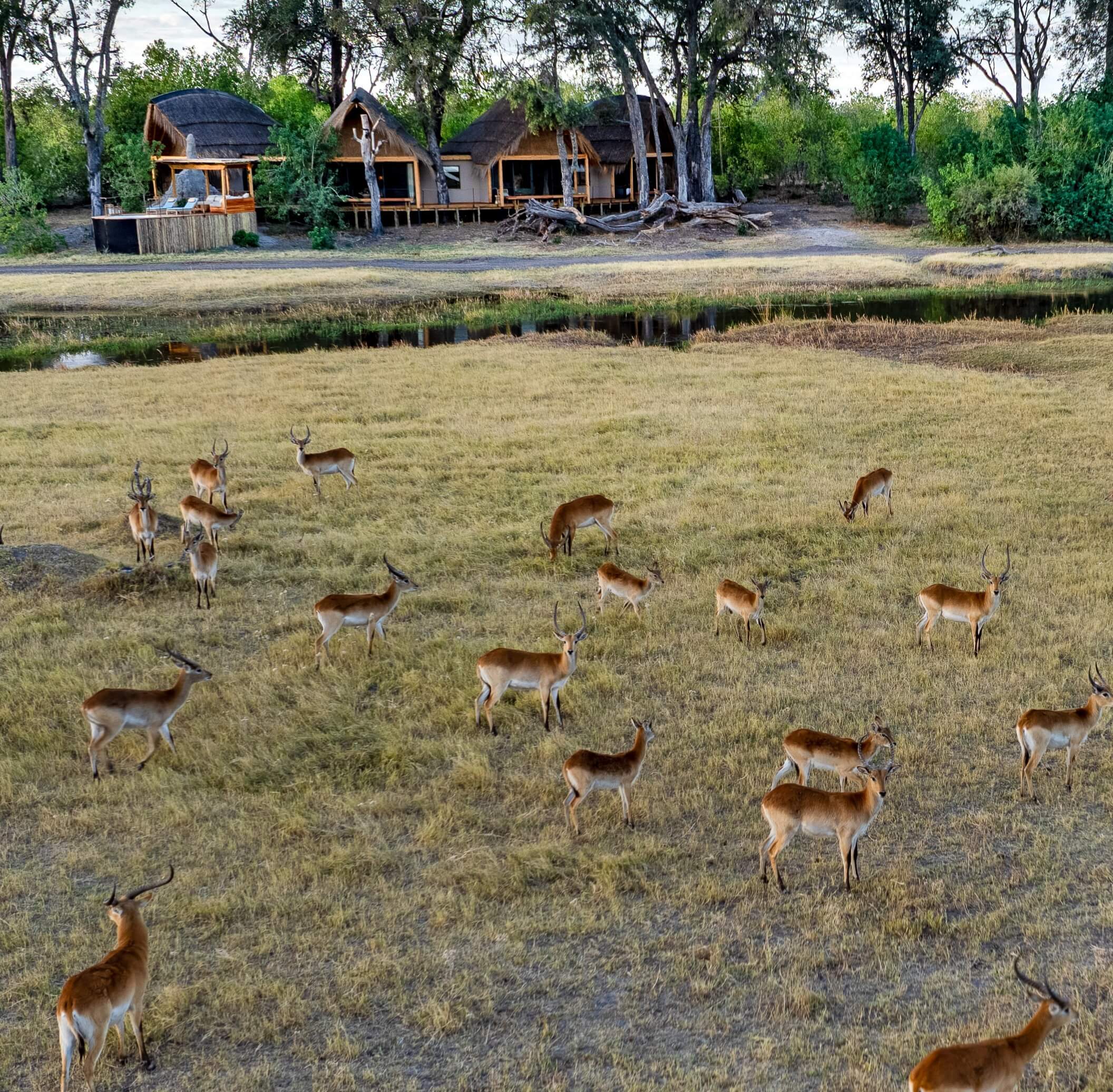Active
Popular
Meet Our Characters: Rethabile Neo Setlalekgomo
 Pru Allison
Pru Allison
 May 25, 2020
May 25, 2020
Rethabile Neo Setlalekgomo
We caught up with MPhil student Rethabile Neo Setlalekgomo to find out more about her work studying leopards in Khwai Private Reserve, why she loves the big cats, and what life’s like in the bush.
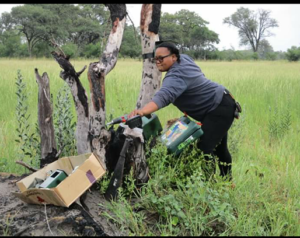
Rethabile sets up a camera in Khwai Private Reserve
Where are you originally from?
“I am originally from Lentsweletau located in Kweneng district in the southern part of Botswana but, I grew up in Gaborone where I attended pre-school all the way to tertiary education.”
Please describe your background to us.
“I am a female of 25 years of age. I am from a single headed family of three. My mother is a zoology lecturer at Botswana University of Agriculture and Natural Resources while my brother is pursuing his postgraduate studies in conservation biology at the University of Botswana. I hold a bachelor’s degree in Environmental Science. This qualification was obtained on the 14th of June 2018 after which I was offered a one-year contract internship at Cheetah Conservation Botswana (CCB). I worked as a field research intern at CCB for nine months. While at CCB I attended a short course offered by Botswana Carnivore Forum. It focused on field data collection techniques. It was during this course that I met my current supervisor Dr Emily Bennitt who told me about the leopard project scholarship. Pursuing postgraduate studies in the field of conservation was exactly what I wanted. In fact, I had already started applying abroad and had gotten acceptance letters from different universities, but lack of financial support was my only challenge. I couldn’t sleep a wink after the conversation I had with Emily. Two days later I submitted my application and kept my fingers crossed for a very long two months. Long story short, I am now pursuing my postgraduate studies at the University of Botswana (Okavango Research Institute), thanks to Natural Selection!”
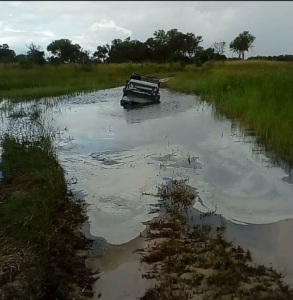
Things don’t always go to plan in the field!
What is the basis of your thesis?
“I am pursuing an MPhil in Natural Resources Management. My thesis is titled ‘Estimating habitat-specific densities of leopard (Panthera pardus) using camera traps and acoustic recorders in northern Botswana’. The study centres on testing and developing novel methods of surveying leopards, including through Passive Acoustic Monitoring devices, and will provide density estimates across the reserve, which will be extrapolated across the Okavango Delta. Previous leopard population studies have relied heavily on camera trapping for population monitoring, but the use of passive acoustic recorders is growing. These techniques are mostly used in isolation and rarely combined. The project will compare camera trapping with acoustic recording and determine the most effective detection method for leopard population monitoring. Specifically, it will (1) determine variations in leopard densities in relation to prey availability and habitat; and (2) compare detection methods. This study will generate habitat-specific densities for leopards and will help inform policy makers on future land use plans and wildlife conservation management plans, potentially highlighting priority areas and actions for conservation.”
Where did your interest in the study matter come from?
“I have always been fond of the big cats and working with CCB made me pay more attention to the ecology of the big cats, especially the cheetah. I would get excited to see a leopard while sorting photos from camera traps but would have to ignore the photo as it was not the focal species, I wasn’t happy about that because leopards faced the same threats that cheetahs or any other carnivore faced in the area. I felt like leopards were not given enough attention hence I was very excited when Dr Emily Bennitt presented me with an opportunity to be involved in a project that focused on leopards, finally! Carnivores naturally exist at relatively low population densities, but there is also a rapid decline of these populations worldwide, hence the need for active conservationists to intervene. Being able to take part and contribute to the conservation of carnivores at large is a dream of mine.”
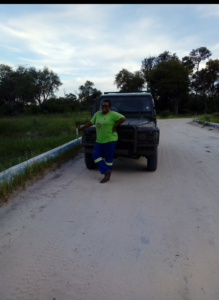
Please tell us about the work you’ve been doing in Khwai Private Reserve.
“I have been mounting camera traps and acoustic detectors to tree trunks in order to estimate the habitat-specific densities of leopards in Khwai Private Reserve (KPR). I had just completed testing my equipment, establishing my survey grids and collecting hundred GPS ground truthing points when the corona pandemic emerged, unfortunately I had to return to Maun as the camp I was based at closed. I am now working from home and writing a review paper on acoustic recorders. I am hopeful that I will return to the field as soon as movement of people is eased in Botswana to start the actual data collection for the study. I have also learnt spoor tracking from the rangers. The KPR leopard project brings together collaborators from the University of New South Wales, University of Botswana, and Botswana Predator Conservation, working in the KPR with Natural Selection Conservation Trust.”
What do you love about the area?
“Khwai Private reserve is a beautiful place to visit. The diversity of wildlife in the area is just great and the staff is awesome, but for a new researcher like me, I must admit the elephants in KPR are the kindest and that’s the one thing I love the most about the area. The elephants always move away from road as if they would be sensing that shaking behind the wheel. My elephant encounters prior to those of KPR were very unpleasant.”
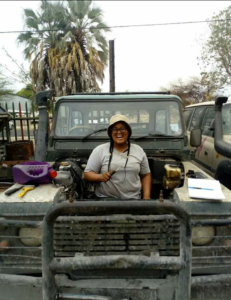
Rethabile has become a pretty handy mechanic!
What’s your favourite memory from your time in the field?
“My favourite memory was on one hot afternoon when I went out to the field alone to deploy some cameras. I identified the perfect tree, parked the car in a shade (trying to keep my water cool) and walked to my ideal tree with a dusty box of tools and equipment in my hands while screening the environment for danger. I spend about twenty minutes at the tree, first drilling a metal box onto the tree trunk then setting up and positioning the camera. I walked back to the car with my box of tools and just as I was about to leave the site, I saw a leopard lying calmly on a branch of the same tree I had been busy drilling gosh!! I was freaked out but also very excited to have seen a leopard. Well, I learnt to always look up. The leopard didn’t seem bothered at all.”
What is it about leopards that fascinates you?
“I am amazed by the strength of a leopard, it’s fascinating enough that leopards are excellent climbers, but the fact that they can still perfectly climb while holding on to a heavy kill is just mind blowing. It is a special quality which helps them survive kleptoparasitism (having food stolen) from other competitor species.”
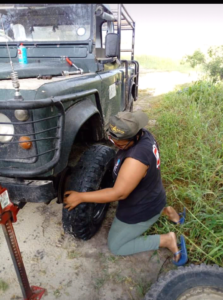
Why is KPR a good place to study leopards?
“Secretive animals like leopards are hectic to study hence why we have very few leopard studies here in Botswana. Leopards in KPR are however different as they are fairly easy to study. The KPR rangers have done a tremendous job on habituating the leopards to vehicles. This makes a researcher’s work very doable as we don’t have to spend hours chasing a running leopard. This saves our car tires too as we don’t have to burst them on stumps while trying to keep up with a running leopard. Being able to just park, observe the leopard and take good photos is just awesome. Thanks to the rangers.”
What are your future plans?
“My plan is to continue to pursue a PhD as soon as I complete my MPhil. I want to promote coexistence among communities facing high levels of human carnivore conflict. I want to carry out more habitat-specific density studies for various carnivores and be able to inform policy on how to better conserve landscapes that house these species. My ultimate goal is to break the glass ceiling and be among the few female Batswana field ecologists and have a lifelong career dedicated to carnivore conservation and of course encourage other young Batswana females to join the profession.”
Special Offers
Our special offers are designed to help you experience everything southern Africa has to offer whilst also saving some all-important pennies. Whether you’re about to embark on a once-in-a-lifetime solo trip, or are celebrating a special occasion, have a peek at our offers and see what could be in store for you.
